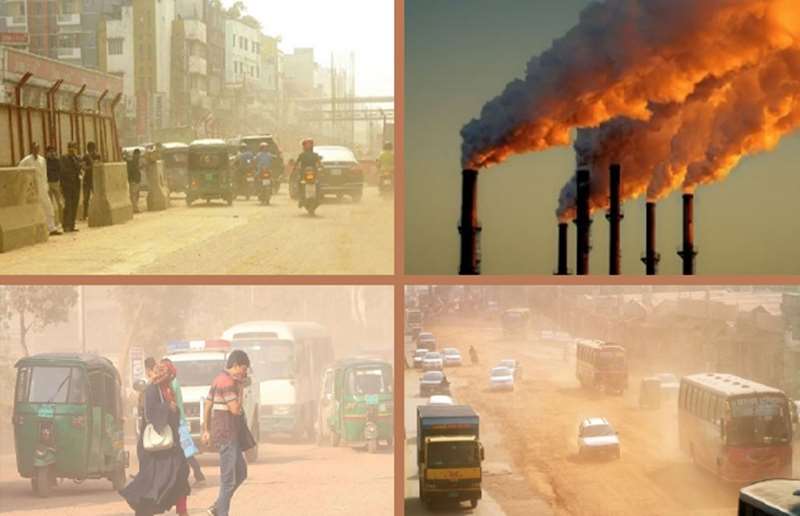World Bank's Country Environmental Analysis
About 3 lakh premature deaths per year

World Bank's Country Environmental Analysis-2023 report
The issue of environmental pollution in Bangladesh has reached alarming levels, as highlighted in the World Bank's Country Environmental Analysis-2023 report. This report sheds light on the significant impact of pollution on public health and the economy, emphasizing the urgent need for intervention.
Extent of the Problem
According to the report, environmental pollution contributes to over 272,000 premature deaths annually in Bangladesh. Air pollution alone accounts for 55% of these premature deaths, resulting in substantial economic losses equivalent to 8.32% of GDP in 2019. Additionally, pollution-related illnesses lead to 5.2 billion days of sickness each year, further straining the healthcare system and productivity.
Key Factors Contributing to Pollution
The report identifies several factors contributing to environmental pollution in Bangladesh, including air pollution (both indoor and outdoor), unsafe water, poor sanitation and hygiene practices, and lead pollution. Notably, 35% of air pollution in Bangladesh is attributed to transboundary sources, highlighting the need for regional cooperation to address this issue effectively.
Government Response and Recommendations
During the official report release ceremony, Environment Minister Saber Hossain Chowdhury emphasized the need for regional collaboration to tackle air pollution and mitigate the impacts of climate change. He stressed that addressing environmental challenges is crucial for ensuring sustainable development.
The World Bank Country Director for Bangladesh and Bhutan, Abdullaye Sek, underscored the importance of prioritizing environmental risks in national development agendas. He emphasized that economic growth must not come at the expense of the environment and advocated for sustainable development practices.
Ana Luisa Gomes Lima, a Senior Environment Specialist at the World Bank and co-author of the report, highlighted the potential for Bangladesh to reverse the trend of environmental pollution through timely and targeted policies and activities.
In conclusion, the findings of the World Bank's report underscore the urgent need for concerted efforts to address environmental pollution in Bangladesh. With the right policies, interventions, and regional cooperation, it is possible to mitigate the adverse impacts of pollution on public health and the economy, paving the way for sustainable development in the country.
This report serves as a call to action for policymakers, stakeholders, and the international community to prioritize environmental sustainability and work towards a cleaner, healthier future for Bangladesh and its people.










পাঠকের মন্তব্য